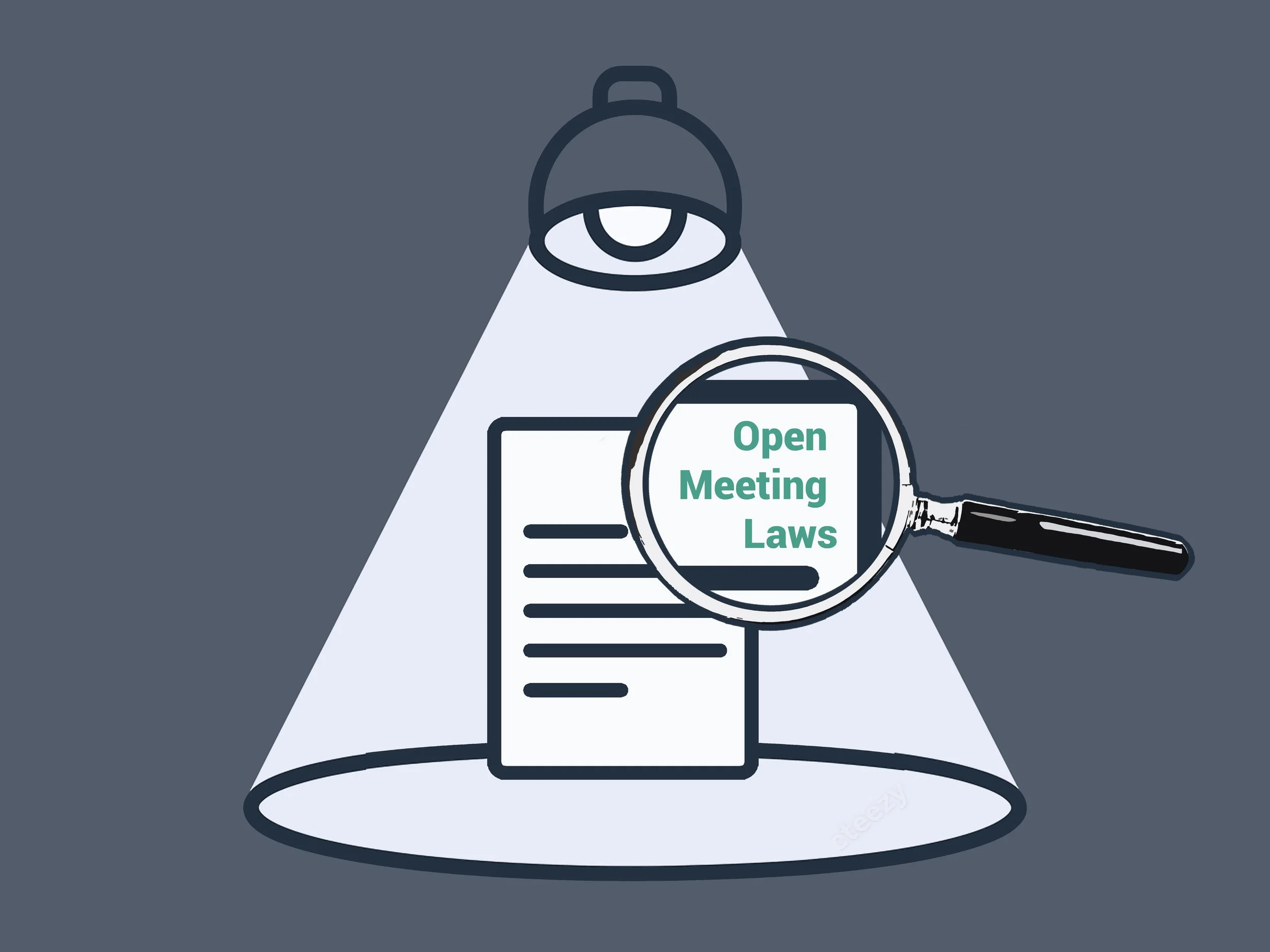What Are Open Meeting Laws in Massachusetts and Why Do They Matter?
Open meeting laws mandate that many types of public board and committee meetings cannot be kept private. Instead, these laws ensure transparency by requiring that meetings be open to the public, that advance notice is provided, and that accurate minutes are maintained.
By mandating transparency, open meeting laws give residents the ability to observe deliberations, understand how decisions are made, and hold public officials accountable.
What Are Open Meeting Laws?
Open meeting laws are designed to protect the public’s right to know. They require public bodies to:
Provide advance notice of meetings.
Open meetings to the public unless specific exceptions apply.
Maintain accurate minutes and make them publicly available.
How Massachusetts Open Meeting Law Works
In Massachusetts, the Open Meeting Law is codified in Chapter 30A of the General Laws.
Key provisions include:
Meeting Notices & Agendas
Public bodies must post notice of meetings at least 48 hours in advance, excluding Saturdays, Sundays, and legal holidays.
Notices must include location, time, and a list of topics the chair reasonably expects to discuss.
Agendas posted should reflect the anticipated topics; while not all need to be discussed, adding new ones mid-meeting must follow procedural rules.
Minutes & Records
Minutes of an open session, whether in draft or approved form, must be made available upon request within 10 days.
The minutes must include things like date, time, place of meeting, who was present or absent, actions taken, and vote records.
Supporting materials (documents, exhibits, recordings used in the meeting) must also be part of the official record.
Other Important Rules
Votes cannot be taken by secret ballot in open sessions.
Communications between members outside of a properly noticed meeting (especially when they form a quorum) that deliberate public business are prohibited.
The Attorney General’s Division of Open Government enforces the law, handles complaints, and can order remedies such as nullifying actions, requiring training, or imposing penalties.
How Other States Compare
While every U.S. state has some version of open meeting or “sunshine” laws, the timing, scope, and rigor vary. Below are several illustrative examples, especially regarding minutes and public access:
Publicization Timing: Massachusetts’ 48 hour rule sits between California’s 72 hour rule and Florida’s flexible “reasonable notice” standard. New York has a 2 week posting rule for minutes.
Late Materials: California’s Brown Act explicitly requires that late-distributed agenda materials be made available to the public when distributed to a majority. While Massachusetts also discourages discussing items not on the posted notice, it is more opaque than California.
Best Practices for Staying Compliant
Post Notices Clearly: Ensure your agenda is shared at least 48 hours ahead, with enough detail for the public to understand what will be discussed.
Follow the Agenda: Avoid straying too far off topic, and if new matters arise, make sure they are handled transparently.
Keep Detailed Minutes: Record attendance, votes, actions, and relevant discussion points. Make minutes available promptly.
Be Ready for Public Comment: If your board allows public comment, clarify procedures like sign-in, time limits, and submission requirements.
Where MuniTrac Enhances Transparency
Staying compliant with open meeting laws can be resource-intensive, especially for smaller municipalities with limited staff. That’s where MuniTrac comes in:
Automatic Transcription: MuniTrac converts public meetings into searchable, speaker-attributed transcripts within 24 hours. This ensures accurate records that align with open meeting law requirements.
Searchable Archives: Instead of digging through hours of video, clerks, officials, and residents can type in keywords and instantly find where topics were discussed.
AI-Generated Minutes: MuniTrac uses generative AI to create minutes based off of your video, agenda, and transcript.
Translation Services: MuniTrac can generate transcripts, and minutes in multiple languages, expanding accessibility for diverse communities.
Transparency at Scale: Whether your municipality holds ten meetings or hundreds, MuniTrac scales to ensure compliance without overloading staff.
Open meeting laws are designed to guarantee transparency and accountability in government. Massachusetts sets clear standards for notices, agendas, and timely meeting minutes. While meeting these obligations can feel daunting, tools like MuniTrac make compliance easier and strengthen trust between public bodies and the communities they serve.
If you want to see how MuniTrac can help your municipality comply with open meeting law and streamline minute-taking, contact us at munitrac@instatrac.com or 617-292-1800.

